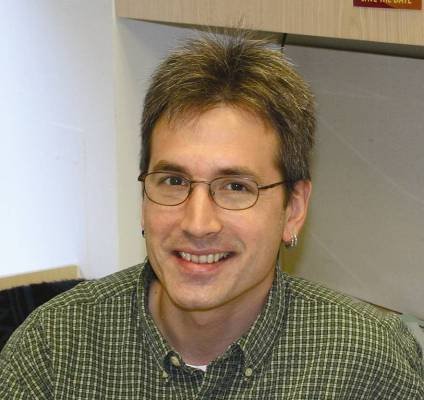Fourteenth Sunday in Ordinary Time
Good contrast between the reading from Ezekiel and the Gospel from St. Mark. In the first reading, the Lord commands Ezekiel to go to the Israelites and to tell 'em to shape up, noting however that they may or may not do so. But either way "they shall know that a prophet has been among them." In the Gospel reading, Jesus goes back home to his native place, to his synagogue, and preaches there, to much grumbling. They know him there, but they know him too well, so they don't know that there's a prophet among them. He's just one of them, they say, he's no prophet.
"A prophet is not without honor except in his native place and among his own kin and in his own house," Jesus says. Kind of a double negative, but what he's saying is that a prophet does have honor, has honor everywhere, except for the one place, the place where they know him. He's preaching to guys he went to school with, who learned the same things from the same rabbis. Who is he, they ask, to preach to them now?
Interesting also is what folks say when they're identifying Jesus among themselves. "Is he not the carpenter, the son of Mary, and the brother of James and Joses and Judas and Simon? And are not his sisters here with us?" We Catholics believe in the perpetual virginity of the Blessed Virgin, so therefore she didn't (couldn't) have any other children, ergo then that Jesus didn't have any siblings. What do we make of this then?
I suppose then we would explain this passage by going back to the original Greek, noting that whatever words we now translate as brothers and sisters are or were then also synonymous with cousins. Or something like that. I go to the online NAB at the US Conference of Catholic Bishops and that is indeed what they say: "[I]n Semitic usage, the terms "brother," "sister" are applied not only to children of the same parents, but to nephews, nieces, cousins, half-brothers, and half-sisters."
There's also, according to the Catholic Encyclopedia, apocryphal writings that have influenced Catholic tradition saying that Jospeph was a widower, with children, at the time of his betrothment to Mary. Those could be the kids referenced here. (That Joseph was an older guy, and maybe had by then passed on, also can help explain why Christ's mother is around later in the Gospels, but his (earthly) father isn't.)
Whatever. I'm not so hung up about all of this. And, lucky for me, we Catholics don't especially have to be. The non-scriptural thing that's like heavy duty required for us is the Assumption, that Mary the Mother of God didn't just die and that was that, but she was corporeally assumed into heaven. But that's just way cool on its own. Who wouldn't want to believe that?
Something else interesting that the USCCB annotations point out about today's Gospel passage is that this is the only Gospel reference to Jesus being a carpenter. This same moment as recounted in St. Matthew reads not "carpenter" but "carpenter's son."
The processional hymn is God Has Spoken By His Prophets, the tune of which, something called Rustington, is fairly in my register. I can sing it. And I love the beginning of the second half of each verse, the F-sharp as the second note. I don't know. It just sounds so serious, so dramatic. The recessional hymn is God, We Praise You, tune of Nettleton, with a daunting key signature of sharps at C and E. But I like the tune a lot and I do surprisingly okay, but Dawn doesn't like it.


0 Comments:
Post a Comment
<< Home